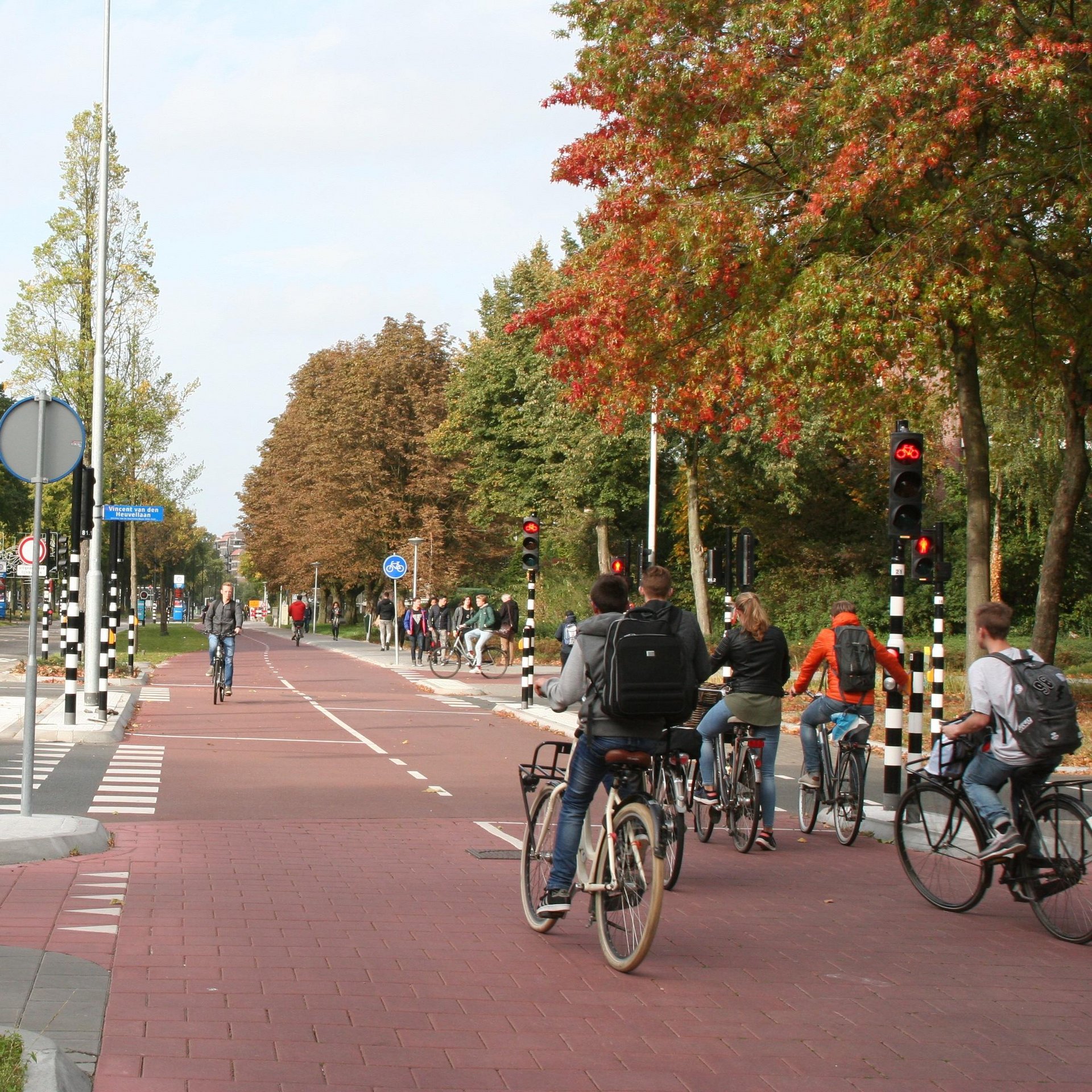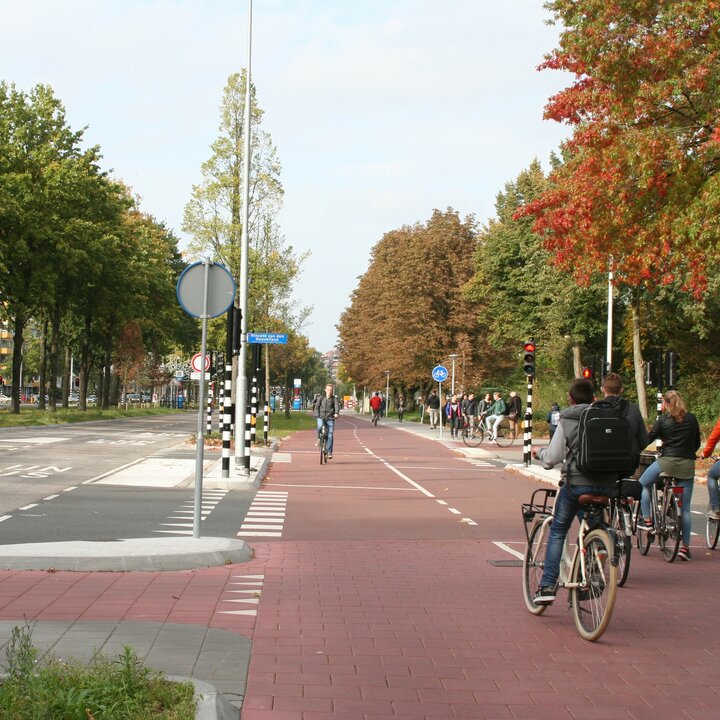SURF Smart Cycling Futures
Motorized urban mobility comes at significant social, environmental, and economic costs to cities around the world. Cycling offers a cheap, efficient, and sustainable alternative for urban transport, and has therefor an unique growth potential for unlocking access to jobs, markets, education, social interactions, and other opportunities that cities have to offer. While Dutch urban residents already make more trips by bicycle compared to other transport modes, Dutch policy makers are articulating even larger ambitions to increase cycling’s mode share to deal with contemporary urban challenges such as pollution, traffic congestion, public health, social inclusion and economic vitality.
Urban design plays an important role in improving the attractiveness of cycling both for transport and recreation. The goal of this research is to improve our understanding of the relationship between cycling and the field of urban design by focusing on how the experience of the cyclist is conceptualized, measured, and evaluated.
Three bodies of knowledge will be consulted: 1) the theoretical discourses of academics2) the professional concepts and strategies of Dutch practitioners 3) the user perspective of cyclists.
This project is financed by NWO Surf, is a collaboration between the Eindhoven University of Technology, the Universities of Amsterdam and Utrecht and the University of Applied Science of Windesheim. It works with Dutch municipalities such as Eindhoven, Utrecht, Zwolle and Amsterdam and other stakeholders in the Netherlands by using Living Labs to study the real-world impacts of new urban design innovations on the cycling experience.
PhD-candidate:
G. Liu
Supervisors:
Prof.dr.ir. P.J.V. van Wesemael
Dr.ir. S. Krishnamurthy
Dr. M. te Brommelstroet

Motorized urban mobility comes at significant social, environmental, and economic costs to cities around the world. Cycling offers a cheap, efficient, and sustainable alternative for urban transport, and has therefor an unique growth potential for unlocking access to jobs, markets, education, social interactions, and other opportunities that cities have to offer. While Dutch urban residents already make more trips by bicycle compared to other transport modes, Dutch policy makers are articulating even larger ambitions to increase cycling’s mode share to deal with contemporary urban challenges such as pollution, traffic congestion, public health, social inclusion and economic vitality.
Urban design plays an important role in improving the attractiveness of cycling both for transport and recreation. The goal of this research is to improve our understanding of the relationship between cycling and the field of urban design by focusing on how the experience of the cyclist is conceptualized, measured, and evaluated.
Three bodies of knowledge will be consulted: 1) the theoretical discourses of academics2) the professional concepts and strategies of Dutch practitioners 3) the user perspective of cyclists.
This project is financed by NWO Surf, is a collaboration between the Eindhoven University of Technology, the Universities of Amsterdam and Utrecht and the University of Applied Science of Windesheim. It works with Dutch municipalities such as Eindhoven, Utrecht, Zwolle and Amsterdam and other stakeholders in the Netherlands by using Living Labs to study the real-world impacts of new urban design innovations on the cycling experience.
PhD-candidate:
G. Liu
Supervisors:
Prof.dr.ir. P.J.V. van Wesemael
Dr.ir. S. Krishnamurthy
Dr. M. te Brommelstroet
